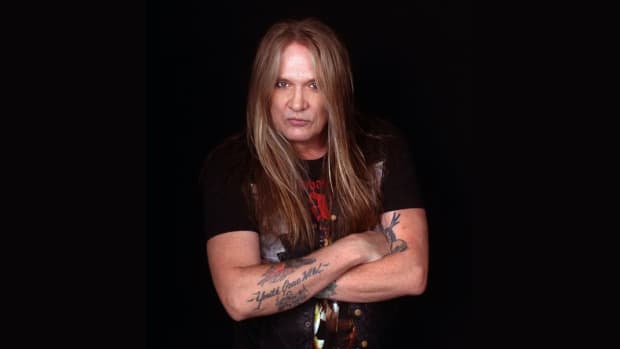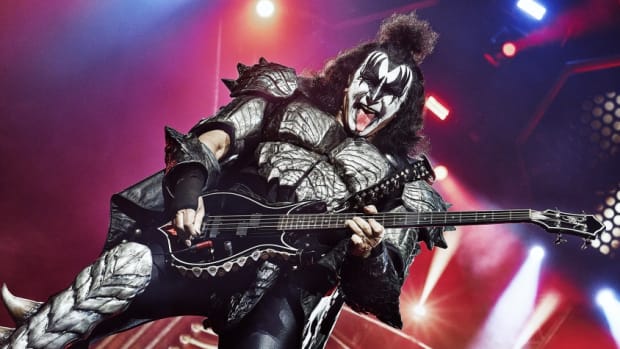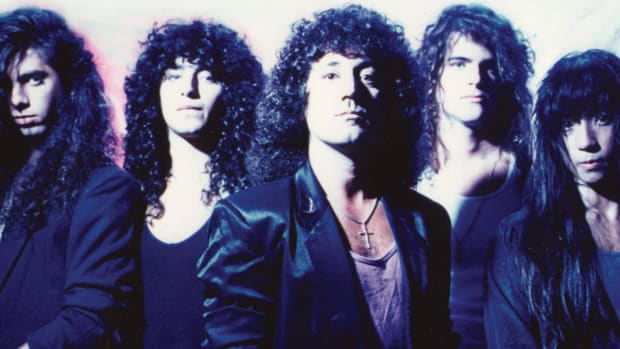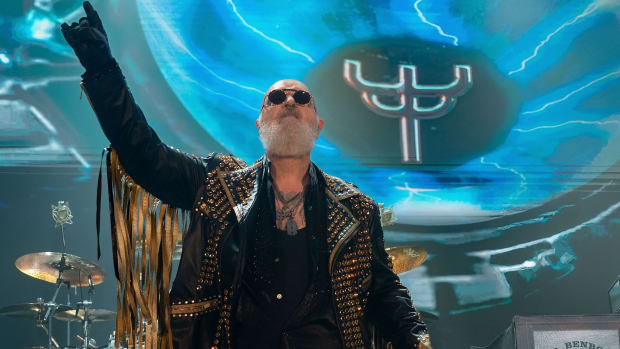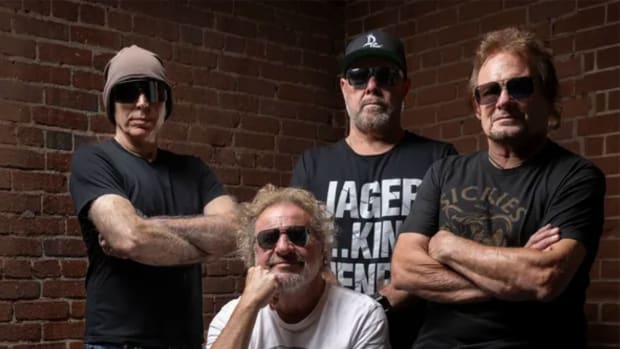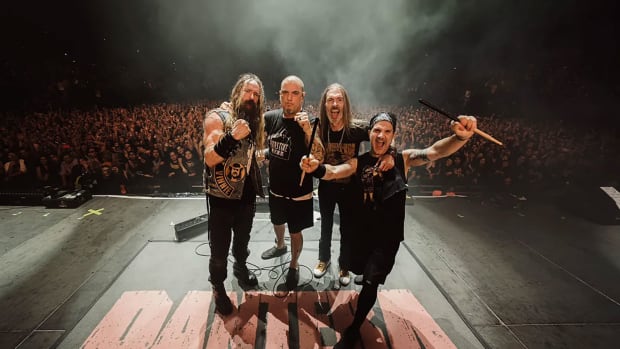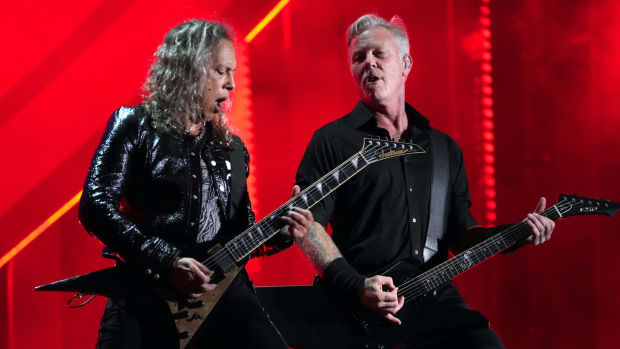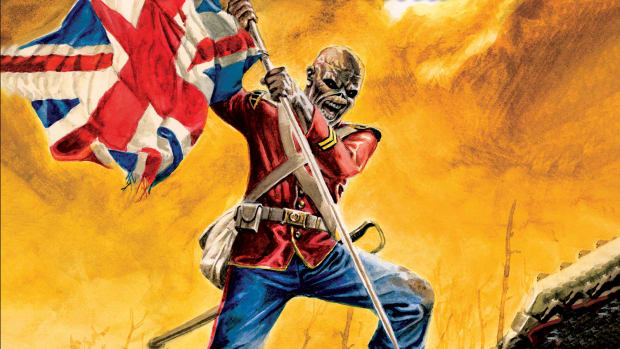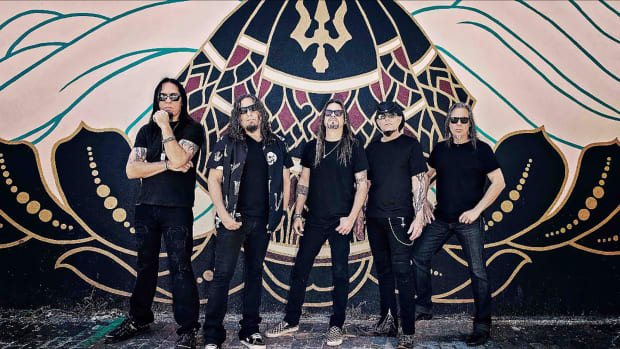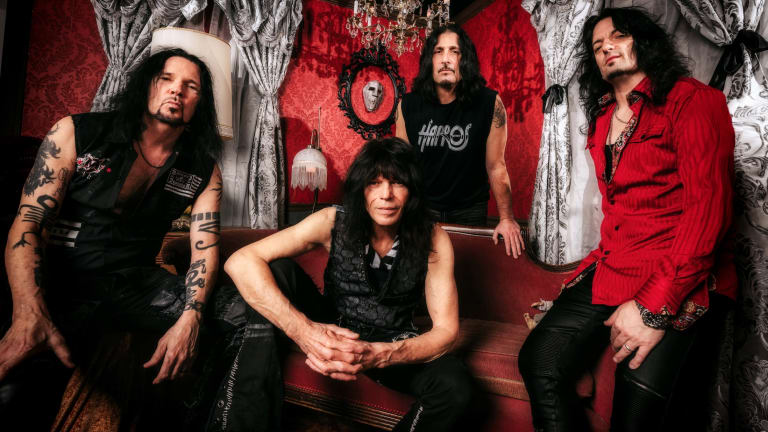
Feel the Noize! Quiet Riot talk 40 years of ‘Metal Health’ and new anniversary tour
By the time Quiet Riot released their 1983 US debut, Metal Health, few in the industry – or, for that matter, outside the industry – had much faith in the band's prospects for mainstream success. Kicking around the L.A. music scene for roughly a decade, the group had already, among other things: conquered major Hollywood clubs like the Starwood on their path to local stardom; landed and lost a Japanese record deal; endured numerous lineup changes (including the exit of superstar guitarist Randy Rhoads and bassist Rudy Sarzo to Ozzy Osbourne’s band); experienced the devastating death of Rhoads in a freak plane accident; and been labeled, in Sarzo’s words, “dinosaurs” by tastemakers and the powers that be.
Another thing they’d done? Broken up. By the early '80s QR was no more, and DuBrow and drummer Frankie Banali were once again toiling in the L.A. clubs, this time under the band name DuBrow. But then a funny thing happened. A record producer named Spencer Proffer, who had worked with the likes of Tina Turner and the Beach Boys, heard a song on the radio – Slade’s 1973 glitter-rock anthem “Cum on Feel the Noize” – and determined that, paired with the right band, one that excelled in what he called “audience participation rock,” it could be resurrected as an anthem for a new generation. Proffer's search eventually led him to DuBrow the singer, and DuBrow the band.
Soon enough, Proffer had DuBrow in his studio, Pasha, with the band (reluctantly) recording “Cum on Feel the Noize" and the producer (reluctantly) recording some of their originals. After a name change back to Quiet Riot, Proffer convinced CBS to (reluctantly) release Metal Health. Through a combination of full-tilt marketing, spectacular MTV videos and, most importantly, incredible songs and studio performances, Metal Health not only succeeded, but achieved the impossible, becoming the first heavy metal album to ever top the Billboard album chart (the record it knocked out of that spot? The Police's Synchronicity). In the process, it kicked open the door for the hard rock and heavy metal onslaught that dominate mainstream music culture in the '80s and beyond.
Now, 40 years after its release, Quiet Riot is celebrating the monumental record on the road. The band itself may look different – Kevin DuBrow passed away in 2007, and Frankie Banali succumbed to cancer in 2020 – but the songs and the spirit remain. Along with Metal Health-era bassist Sarzo, the group – longtime guitarist Alex Grossi, singer Jizzy Pearl (also of Love/Hate) and former Type O Negative drummer Johnny Kelly are taking the tunes to the fans, imploring one and all to once again “Bang Your Head” and, well, feel the noize.
On the eve of the tour's kickoff on February 18, Grossi and Sarzo sat down with Metal Edge to talk about the past, present and future of the band that, Grossi says, “through it all, has persevered.”
Metal Health is celebrating its 40th anniversary in 2023. But you’re starting the tour a year early.
Rudy Sarzo: We're calling it a celebration of the “making of." Because there was an evolution to the record, and that’s something that began 40 years ago from now. It started when the band that was known as DuBrow returned to being Quiet Riot and made the record that became Metal Health.
Can you talk a little about what we can expect to see on this tour?
Alex Grossi: We’re doing most of the Metal Health record in the set, and it’s a celebration of this music, and also a tribute to Randy, Kevin and now, unfortunately, Frankie, who are all no longer with us. Overall we’re playing the hits, the songs people know from their youth, if you will. It's just a fun show. And having Rudy back has definitely injected a new energy into the whole thing.
Before Quiet Riot released Metal Health, everyone had counted the band out. You didn’t even exist in name. And yet, you wound up creating what became an era-defining record.
Sarzo: You know, it wasn’t just this band that was counted out – it was a whole generation of bands, the whole genre of music that we were doing at the time. That made it very tough psychologically. Because at least if everybody else in your genre is getting signed, that gives you hope that, “Yeah, maybe if we write that song we'll get the attention of the labels, too…” But this was an era where it was, “No, all of you guys go away! You are dinosaurs!” And most of us were in our early twenties! [laughs] But it was, “This music is never gonna happen again, so just move on to something else. Cut your hair, start playing new wave or punk. We're not gonna sign you as a metal band.” That's what we were all facing at that time. And I even tried it with Frankie. We were in a band called Private Army, we cut our hair shorter, we made demos… but we still sounded like a heavy rock band. So we said, “Okay, this is who we are. This is what we're gonna do.” You’re basically running on blind faith at that point.
As the story goes, Spencer Proffer, who produced Metal Health and signed Quiet Riot to his label, Pasha, initially brought you guys into the studio only because he wanted you to cover “Cum on Feel the Noize.” He wasn’t really interested in your original material.
Sarzo: Yes. You had Spencer Proffer, who really believed in one song. And he believed that Quiet Riot – or, at least, Kevin DuBrow – could sing “Cum on Feel the Noize.” That was his ace in the hole. The rest, he was kind of like, “Ehh, okay… But at least I got this song out of this guy.”
At the time he hooked up with the band, it was known as DuBrow. Quiet Riot was over.
Sarzo: Yes. But I don't know if people know this, but during the last break that Randy and I had from Ozzy, we were hanging with Kevin, as we always did when we came back to L.A., and he said, “Listen, do you guys mind if at some point I rename DuBrow as Quiet Riot?” And of course Randy said yes, gave him his blessings. And so did I. So it was kind of in the works about a new version of Quiet Riot, even when Randy was still with us.
Alex, along with Frankie until his passing last year, you have been the keeper of the Quiet Riot flame in the 21st century. What does the name Quiet Riot mean to you? And what do you think it still means to the fans?
Grossi: Well, Quiet Riot is most known for being the first metal band to go to Number One on the Billboard album chart and breaking down the door for all the ‘80s metal, Sunset Strip music. And for me, one of the first heavy metal videos I ever saw was “Metal Health” on MTV. That was huge. But the Quiet Riot thing is also so much bigger than just that. It’s a story that goes back to the ‘70s. There’s so much history, and between the Ozzy thing and all the other bands that everyone has been associated with, it’s affected so much beyond just that one genre of music. And through it all, the band has persevered. Like Rudy was saying, even back then it was challenging, with people saying, “It’s over, you’re a dinosaur.” Well, pretty soon this band's going to technically be 50 years old. And we’re still going. That's pretty crazy if you think about it. I think the fans recognize that about this band, and they appreciate it.
The dinosaurs are still roaming the earth.
Grossi: [laughs] Exactly!
So here you are going out on the 40th anniversary Metal Health tour. Rudy, what do you recall about the actual Metal Health tour?
Sarzo: When we first went out, it was with Vandenberg up in the San Francisco area and we were driving ourselves around in station wagons. I was back in the clubs, I was not on a major tour bus going onstage in arenas with Ozzy, but I was happy. I was with my family. And then we got an RV. We drove ourselves around, opening up for the Scorpions, which led to the US Festival. And then back on tour again with ZZ Top, driving ourselves in an RV. Then we opened for Loverboy, and there was a little disparity between their lifestyle and the Quiet Riot lifestyle at the time, so we got kicked off the tour. [laughs] But within a week our manager put together a headline tour with Queensryche supporting us, and it was either Axe or Kick Axe – I always get confused there – also on the bill.
But what I remember most is it was a celebration every single night. It didn't matter where we were or who we were playing with – Loverboy, ZZ Top, later on Judas Priest and Black Sabbath. It didn’t matter if we were in a club or an arena. It was just, “Go up there and have fun and be Quiet Riot.”
I have to ask: What was the "lifestyle disparity" between you and Loverboy?
Sarzo: I mean, come on! It was Kevin and Frankie just having a ball, you know? I was engaged, so my lifestyle was different. Also, I had been there already. Being on a tour bus with Ozzy was quite an experience. So any anything else after that was like, “Eh…” [laughs]
Quiet Riot fans have lived with the loss of Randy Rhoads and Kevin DuBrow for decades now. But Frankie’s passing is something that still feels very fresh. When you think back on Frankie, what comes to mind?
Grossi: To me, he was more than just the drummer of the band and the boss. He was a mentor. When I met Frankie I was 25 years old and I didn't know how it all really worked – I just knew what I saw on Behind the Music and whatnot. But with Frankie it was like, “Oh, you can be the guy onstage and also take care of your business offstage.” He was like a father figure, too, because when you're out in L.A. by yourself and your family's 3,000 miles away, he’s the guy who’s looking out for you and always making sure everything is handled. There's not too many people like that out there.
I’ll always remember one of my first big shows with Quiet Riot – it was in Barcelona opening for Megadeth, and it was 15,000 people and everyone was going nuts. So after the show, everyone's backstage and high-fiving… and Frankie's just giving me this look. I look at him and he goes, “Listen, I'm not a dog catcher. Pull it back.” That's all he said to me. [laughs] I'm like, “Okay…” I didn't understand at first, but now I get it. As guitar players, we naturally tend to play on top of the beat. But he wanted me to relax and find the groove. And he was the first drummer that brought that to my attention. Playing with Frankie, it was almost like bootcamp the first couple of years.
Sarzo: When I think of Frankie, I think of family. I met Frankie in 1972 and we started playing together immediately. He was the first musician that I got to play with outside of the Cuban music scene. Frankie exposed me to so much music. He used to work at a record store, so he had a massive of collection of records, and it was diverse – jazz, prog rock, all that stuff. He turned me onto all of it. And he’s also the drummer who taught me how to be a part of the rhythm section, and how to play as a unit. And whoever I’ve played with throughout my career, I’ve brought a lot of what I learned from Frankie with me. He has been my family for 50 years. So when I think about it, I think of this tour as not only a 40-year celebration of Metal Health, but also, for me, it’s a 50-year celebration of my friendship and my musical brotherhood with Frankie Banali.
From the looks of it, this is the beginning of a long celebration. What's to come?
Grossi: What you see online right now is only about half what we have – we haven't announced everything yet. There's already dates in 2023, and we're part of an ‘80s package as well. So it's a combination of everything – festivals, clubs, casinos – and it's going to be very extensive. I plan on going through a lot of Walmart suitcases this year!
